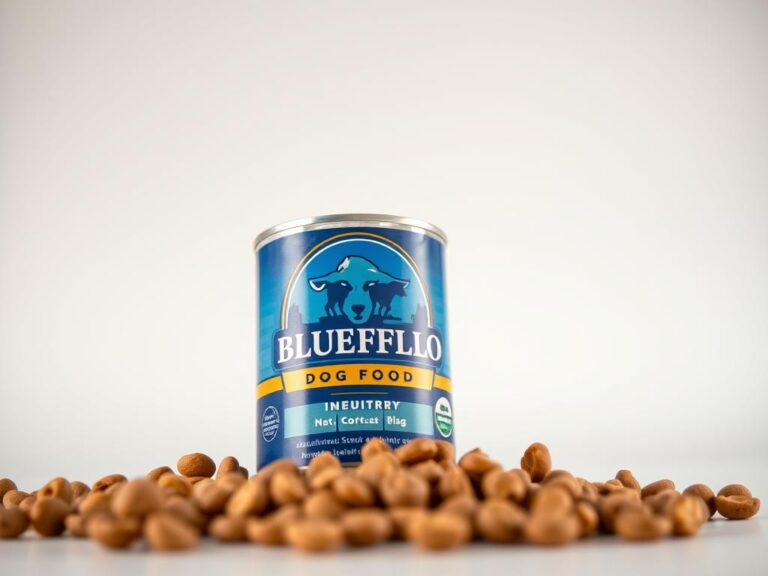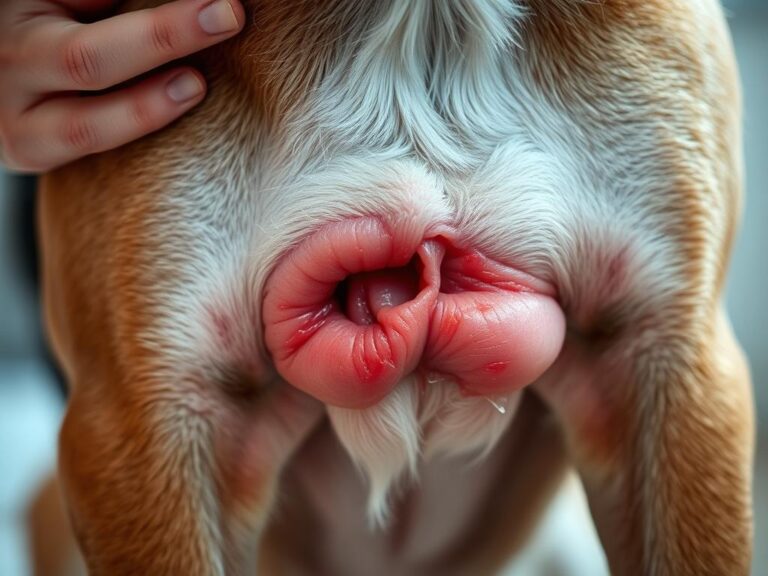Why Does My Dog Keep Sneezing?
As a responsible dog owner, it’s natural to be concerned when your furry friend starts sneezing persistently. Sneezing can be a sign of various underlying issues, ranging from minor irritants to serious health conditions.
Sneezing in dogs is a common occurrence that can be triggered by a variety of factors. Understanding the reasons behind your dog’s sneezing is crucial for their health and well-being.
In this article, we will explore the different reasons why dogs sneeze and what you can do to address the issue. By identifying the cause, you can take appropriate action to ensure your dog’s health.
Common Causes of Dog Sneezing
The reasons behind a dog’s sneezing can vary significantly, from normal physiological responses to environmental irritants. Understanding these causes is crucial for determining the best course of action to help your dog.
Normal Physiological Reasons
Dogs sneeze for various reasons, some of which are completely normal and harmless. Sneezing is a natural reflex that helps to clear the nasal passages of irritants and debris. In many cases, sneezing in dogs is a response to excitement or play, and it can also be a way for them to communicate or release pent-up energy.
Environmental Triggers
Environmental factors play a significant role in triggering sneezing in dogs. Dust, pollen, and other airborne irritants can cause sneezing, especially in dogs that spend a lot of time outdoors. Household cleaning products, perfumes, and other strong-smelling substances can also trigger sneezing in sensitive dogs.
Seasonal Factors
Seasonal changes can also contribute to sneezing in dogs, particularly those with allergies. During certain times of the year, pollen counts are higher, which can exacerbate allergic reactions and lead to increased sneezing. Understanding the seasonal factors at play can help you take steps to minimize your dog’s exposure to allergens.
By recognizing the potential causes of your dog’s sneezing, you can begin to address the issue and help your dog feel more comfortable. Whether it’s adjusting your home environment or consulting with a veterinarian, there are steps you can take to alleviate your dog’s sneezing.
Why Does My Dog Keep Sneezing? Understanding Different Types of Sneezes
Not all sneezes are created equal, and recognizing the different types can help you better care for your dog. Dogs sneeze for various reasons, ranging from normal physiological responses to potential health issues.
Regular Sneezes vs. Reverse Sneezes
Dogs exhibit two main types of sneezing: regular sneezes and reverse sneezes. Regular sneezes are characterized by a sudden, forceful expulsion of air from the lungs, usually in response to an irritant in the nasal passages. On the other hand, reverse sneezes involve rapid, repeated inhalations through the nose, often making a distinctive honking or gagging sound.
Reverse sneezing can be alarming for dog owners, but it is generally less serious than it sounds. It occurs when the nasal passages or sinuses become irritated, leading to a spasmodic attempt to inhale through the nose. While regular sneezing is often a response to an irritant, reverse sneezing is more about the dog’s attempt to clear the nasal passage.
Excitement or “Play” Sneezing
Some dogs sneeze during play or when they’re excited. This type of sneezing is often referred to as “play sneezing.” It’s a normal behavior and is not typically a cause for concern. Play sneezing is a way for dogs to communicate that they’re having fun and are not a threat.
What Your Dog’s Sneeze Pattern Indicates
The pattern and frequency of your dog’s sneezing can provide valuable insights into their health. Frequent or persistent sneezing could indicate an underlying health issue, such as allergies, a foreign object in the nasal passage, or a respiratory infection. Monitoring your dog’s sneezing patterns and consulting with a veterinarian if you notice any unusual changes is crucial for maintaining their health.
Medical Conditions That Cause Sneezing in Dogs
While sneezing is a normal occurrence in dogs, persistent or severe sneezing can indicate a medical condition. Various health issues can cause sneezing, and understanding these conditions is crucial for dog owners to provide appropriate care.
Respiratory Infections
Respiratory infections are a common cause of sneezing in dogs. These infections can be viral or bacterial and often result in symptoms such as nasal discharge, coughing, and lethargy. For more information on why your dog might be sneezing, you can visit PetMD. Ensuring your dog gets plenty of rest and stays hydrated can help manage the symptoms.
Allergies and Irritants
Just like humans, dogs can suffer from allergies that cause sneezing. Common allergens include pollen, dust, and certain cleaning products. Identifying and minimizing exposure to these irritants can help alleviate sneezing caused by allergies.
Foreign Objects in the Nasal Passage
Sometimes, sneezing can be caused by a foreign object lodged in the nasal passage. This is more common in curious dogs that tend to sniff or inhale small objects. If you suspect a foreign object is causing your dog’s sneezing, it’s essential to seek veterinary care.
Dental Problems and Nasal Tumors
Dental issues, such as abscessed teeth, and nasal tumors are less common but serious causes of sneezing. These conditions often require professional veterinary diagnosis and treatment. Regular dental check-ups can help prevent some of these issues.
Understanding the underlying cause of your dog’s sneezing is crucial for providing the right care. If you’re concerned about your dog’s sneezing, consulting with a veterinarian can help determine the best course of action.
When to Be Concerned About Your Dog’s Sneezing
Sneezing in dogs can range from a normal physiological response to a sign of an underlying medical condition. While occasional sneezing is typically not a cause for concern, persistent or severe sneezing can indicate a health issue that requires attention.
Warning Signs That Require Veterinary Attention
If your dog’s sneezing is accompanied by other symptoms such as nasal discharge, loss of appetite, or lethargy, it’s crucial to seek veterinary care. These signs could indicate a respiratory infection or another serious condition. Additionally, if your dog sneezes blood or exhibits signs of difficulty breathing, immediate veterinary attention is necessary.
Monitoring your dog’s behavior and overall health is key to determining whether their sneezing is a sign of a more significant problem. Keep an eye out for changes in their sneeze pattern or the presence of other concerning symptoms.
- Nasal discharge or bleeding
- Loss of appetite or weight loss
- Lethargy or depression
- Difficulty breathing or rapid breathing
Breed-Specific Respiratory Considerations
Certain dog breeds are more prone to respiratory issues due to their anatomy. Brachycephalic breeds, such as Pugs and Bulldogs, have a shorter nasal passage and can experience more breathing difficulties. Owners of these breeds should be particularly vigilant about monitoring their dog’s sneezing and overall respiratory health.
Understanding the specific needs and potential health concerns of your dog’s breed can help you provide better care and make informed decisions about their health.
How to Help a Sneezing Dog at Home
If your dog is sneezing frequently, there are several steps you can take at home to alleviate its discomfort. Creating a comfortable environment and providing supportive care can significantly reduce your dog’s sneezing.
Creating a Clean Environment
A clean environment is crucial in reducing irritants that may cause sneezing. Regularly vacuuming and dusting your home, especially areas where your dog spends most of its time, can help minimize allergens.
- Use a vacuum cleaner with a HEPA filter to trap dust and allergens.
- Dust surfaces with a damp cloth to prevent dust from becoming airborne.
- Keep your dog’s bedding clean by washing it regularly.
Supportive Care Techniques
Supportive care techniques can provide relief to a sneezing dog. Using a humidifier can help moisturize the nasal passages and reduce sneezing caused by dryness or irritation.
Key Supportive Care Techniques:
| Technique | Description | Benefits |
|---|---|---|
| Humidifier Use | Moisturizes nasal passages | Reduces sneezing caused by dryness |
| Nasal Saline Drops | Loosens nasal debris | Eases congestion |
| Steam Inhalation | Helps loosen mucus | Relieves nasal congestion |
Veterinary Treatments and Prevention
While home care can alleviate sneezing, some cases may require veterinary attention. Understanding when to seek professional help is crucial.
Prevention is key:
- Regular veterinary check-ups can help identify underlying conditions early.
- Keeping your dog’s vaccinations up to date can prevent infections that cause sneezing.
- Avoiding exposure to known allergens and irritants can reduce sneezing episodes.
By combining a clean environment, supportive care techniques, and appropriate veterinary treatments, you can effectively help your sneezing dog.
Conclusion
Recognizing why your dog keeps sneezing is crucial for providing the right care and ensuring their overall dog health. By understanding the various causes of sneezing, from normal physiological reasons to potential medical conditions, you can take the necessary steps to address the issue.
Regular monitoring of your dog’s sneezing patterns, coupled with a clean environment and supportive care techniques, can significantly contribute to their well-being. If you’re concerned about your dog’s sneezing, it’s essential to identify warning signs that require veterinary attention.
By being proactive and informed, you can help your dog stay healthy and happy. Understanding why does my dog keep sneezing is the first step towards providing the best possible care for your furry companion.






